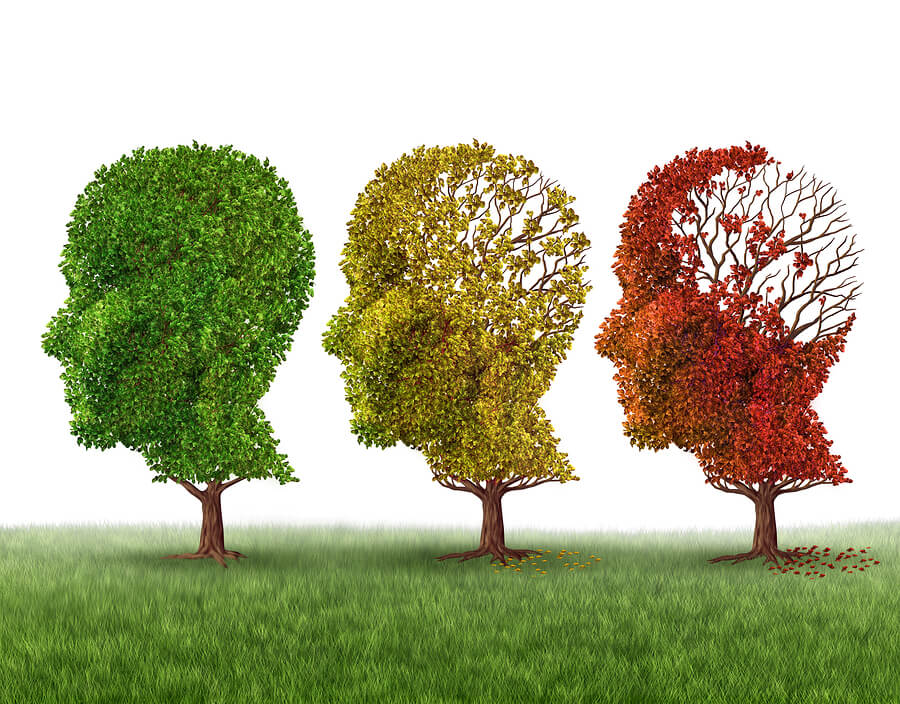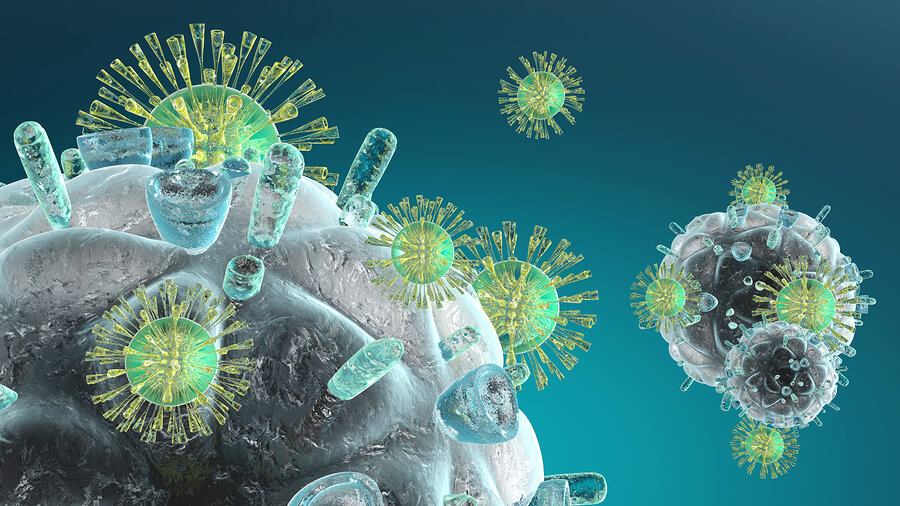
Long-Term Cocaine Effects on the Body and Brain – The long-term abuse of cocaine, a potent stimulant drug, can result in a myriad of physical and emotional problems. Sometimes, it is possible to reverse the damage done to the brain and body via cocaine addiction – however, years of abuse may cause permanent effects. Treating chronic conditions related to this disease can lead to a lifetime of medical complications, hospital and doctor visits, and medical bills.
Long-term Cocaine Effects
Cardiovascular Damage
Immediate side effects from cocaine and crack include increased blood pressure, rapid heartbeat, and vasoconstriction in the brain and body. Chronic abuse of both forms of cocaine can damage the cardiovascular system in several ways, including the following:
- Blood clots resulting in heart attack, stroke, pulmonary embolism, and deep vein thrombosis
- Chest pain from tightening of the vessels
- Myocardial infarction, or the destruction of the heart muscle due to a lack of oxygen related to reduced blood flow
- Permanently elevated blood pressure
- Arrhythmia (irregular heart rate)
Cardiac arrest is the leading instigator of death among those who abuse cocaine. One report revealed that heart attacks accounted for 25% of deaths among people ages 18-45 who have abused cocaine or crack.
Damage to the Nose and Mouth
Snorting cocaine causes damage directly to the mucous membranes in the nose. Drier environments and decreased blood flow allow the soft tissues in the nose to deteriorate and die. The cartilage lining between nasal cavities (the septum) will then be exposed, and it too will eventually die, resulting in a hole.
Many people who battle with cocaine addiction develop septal perforations, which can lead to a collapse of the nose structure and breathing problems. Sometimes, this problem can be corrected with plastic surgery, but not always.
A similar process can transpire in the mouth’s upper palate. Palatal perforations are not as prevalent as septal perforations, but they can occur are a result of long-term abuse.
Respiratory and Pulmonary Damage
Snorting cocaine can produce mucous membrane damage through the sinus cavity that eventually moves to the throat and upper respiratory system. Smoking crack, however, is more likely to result in serious respiratory problems. As blood vessels in the lungs constrict, alveolar walls are destroyed so that it is more difficult for oxygen to enter the bloodstream.
A chronic cough, a higher risk of infections such as pneumonia and tuberculosis, acute respiratory distress, asthma, and pulmonary edema are all linked to freebasing cocaine. People who chronically abuse crack can develop “crack lung,” or eosinophilic pneumonitis, which may also include symptoms such as black sputum, wheezing sounds, and pain.
Brain Damage

Both cocaine and crack can cause brain damage, even when used for a relatively short period. Damage to brain structures can trigger addiction, a chronic disease associated with chemical interference in the brain’s reward circuits and the dopamine system.
Abusing cocaine can result in other kinds of long-term damage as well. For example, the consistent constriction of blood vessels can decrease the amount of oxygen received by the brain, which can also cause brain damage. Additionally, it raises the risk of an aneurysm due to damage to the vascular walls that feed the brain.
Further brain damage from cocaine or crack may include the following:
- Mini-strokes, or transient ischemic attacks
- Seizures
- Brain shrinkage
- Cerebral vasculitis (inflammation of blood vessels in the brain or spinal column)
- Hyperpyrexia (extremely high fever that requires medical attention)
- Changes to temporal and prefrontal lobe functioning, which impairs problem-solving, decision-making, spatial understanding, vocabulary, learning, attention, and memory
- Changes to neurotransmitter creation and absorption, which can cause mood disorders
- Tremors and changes in gait
Also, cocaine ages the brain, so the risk of dementia increases. Long-term memory impairments can turn into conditions mimicking Alzheimer’s disease. People who are at a heightened risk of developing dementia are more likely to trigger this condition earlier in life when they abuse cocaine for an extended period.
If the linings of the arteries and veins are damaged, cocaine effects can reduce the flow of blood to the brain, causing chronic headaches. This damage can also produce blood clots, which can result in a stroke. The drug can also induce seizures, either during a binge or following chronic abuse, or cause a seizure disorder to develop, which will require long-term treatment.
Gastrointestinal Damage
Due to reduced blood flow throughout the body, several organ systems, such as the stomach and intestines, can be indirectly damaged over time. Short-term undesirable cocaine effects include abdominal pain, suppressed appetite, nausea, vomiting, and constipation. Over time, these side effects can become permanent, leading to necrotic bowel or death of vital tissues in the gastrointestinal system.
People who struggle with cocaine addiction are also more likely to develop ulcers due to changes in the stomach’s pH level. Additionally, cocaine abuse can result in the development of ischemic colitis, which is inflammation and injury of the large intestine. This condition can cause severe digestive disorders and even lead to death.
Liver Damage
Chronic cocaine abuse indicates a higher risk of overdose, which can lead to liver injury, as the body is overwhelmed with toxins that the liver cannot filter out. While most damage to the liver will resolve if the person recovers from the overdose and they overcome cocaine addiction, there have, unfortunately, been fatalities due to acute cocaine-related liver damage.
Long-term liver damage is more likely to occur if the user mixes cocaine with alcohol, a combination that prompts the liver to produce cocaethylene. This chemical enhances the depressant effects of alcohol and causes an increase in aggression, stress on the heart, and damage to the liver.
Kidney Damage
Chronic cocaine use can cause damage to the kidneys in two ways. First, permanently raised blood pressure results in kidney damage due to loss of blood flow. While many organ systems are damaged by a lack of oxygen and high blood pressure, the kidneys are particularly vulnerable.
Second, long-term cocaine abuse can lead to rhabdomyolysis – the destruction of skeletal muscles. As these muscles deteriorate, toxins are released into the body, and eventually flood into the liver and kidneys. Kidney failure is a late-stage consequence of rhabdomyolysis.
Infectious Diseases

People who suffer from cocaine and crack addiction are more likely to contract certain infectious diseases, including HIV and hepatitis. Sometimes, this is due to the sharing of unsterile needles. More often, however, cocaine effects contribute to poor decision-making, increased risk-taking, impulsivity, and enhanced libido, which can lead to risky sexual encounters.
Additionally, cocaine abuse compromises the immune system, so diseases spread more rapidly through the body.
Treatment for Cocaine Addiction
While there are no medications currently indicated to treat cocaine addiction or withdrawal, it is still a very treatable condition. Frequently, this begins with a clinical detox and is closely followed by a transition to a partial hospitalization, inpatient, or outpatient addiction treatment program.
Our center offers an integrated, evidence-based approach to addiction treatment that includes behavioral therapy, counseling, and group support. Our center employs compassionate medical professionals and certified clinicians who specialize in addiction and provide clients with the skills they so desperately need to recover and enjoy long-lasting sobriety and wellness.
Please call us as soon as possible – we can help you reclaim your life and experience the happiness and harmony you deserve!